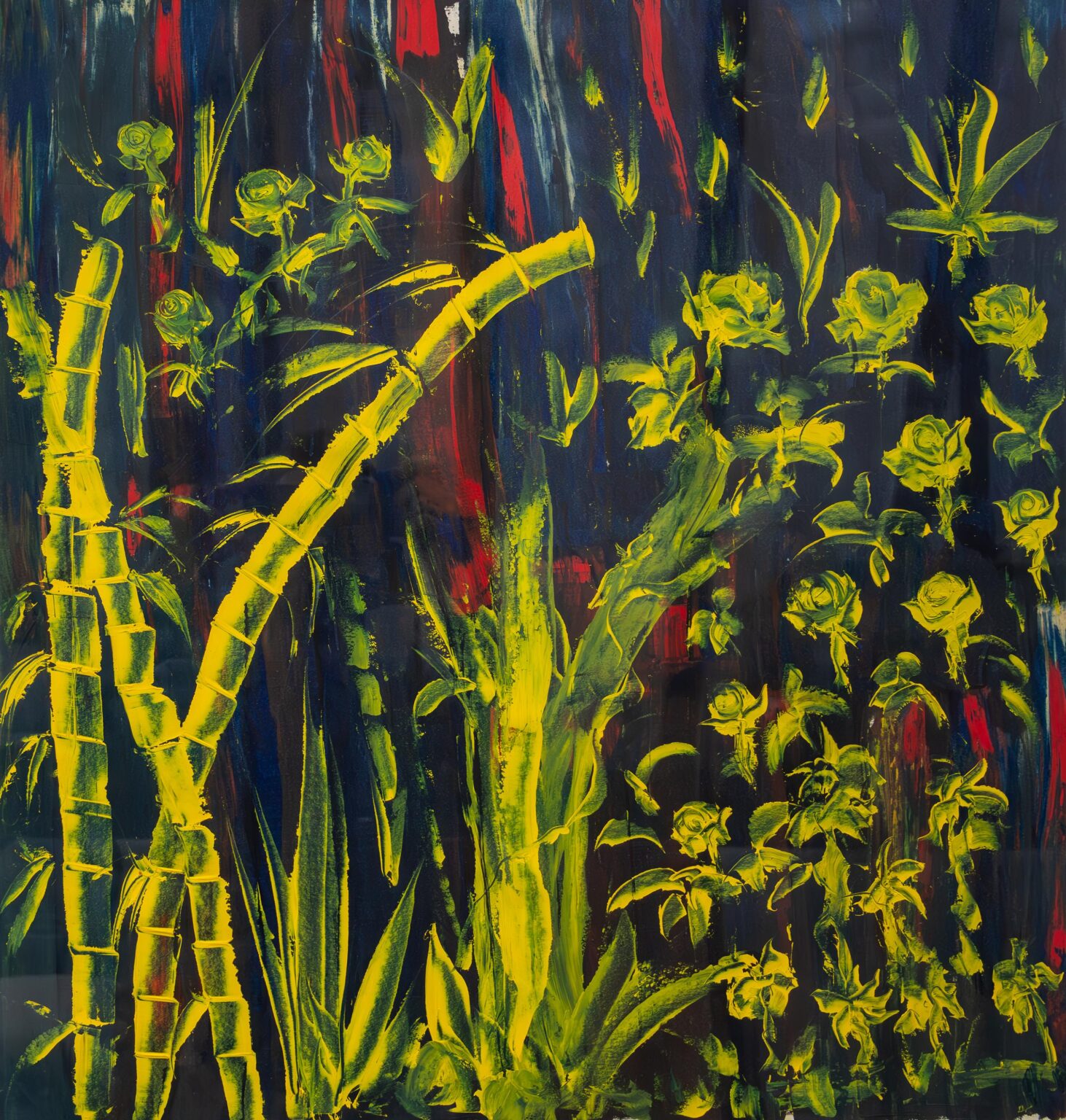
Yellow Rose presents a jungle in turmoil. Plant-like forms stand glowing in the foreground—bamboo, leaves, roses—while the background appears to burn: dark blues and blacks streaked with glowing red. It feels as though the forest is on fire—not literally, but emotionally. Like a memory that burns.
The yellow strokes are impulsive yet precise—direct in motion, free of decoration. They glow against the dark surface like something alive that is vanishing. The rose is not a romantic symbol here, but a fragile apparition—something beautiful caught in flames. The yellow roses appear not as natural vegetation but as deliberate symbolic insertions. Foreign in the context of the jungle, they act as implanted signs, marking death and the destruction of the rainforest. In their glaring colour they stand for transience, for flare and extinction in the face of flames. In several Asian cultural contexts, yellow is closely associated with death and transience—here that meaning is sharpened: yellow becomes the colour of destruction, a sign of fragility and the rainforest’s vanishing. That the artist chooses the rose—a European, non-tropical flower—opens a colonial reading: it becomes an inscribed alien symbol, making visible the violence of external forces, the reshaping and wounding of nature through colonial history and global intervention. Thus the roses turn into paradoxical images—of beauty and death, of foreignness and appropriation, of cultural symbolism and ecological reality.
The work is deeply expressionist, erupting with colour and gesture, yet infused with Symbolist undertones. Here, colour itself becomes symbolic: yellow does not stand for joy or friendship, but for death, loss and the destruction of the forest. This is not an objective scene but a subjective vision—an oneiric landscape of fear, memory and emotion. The jungle is transformed into an inner state, charged with vulnerability and threat, where every form is less description than metaphor.
In Yellow Rose, Chef de Mulu channels his experience of Borneo’s jungle and its fragility into a visual language that does not illustrate but charges—making visible the psychic weight of destruction, history and beauty in the moment of disappearance.